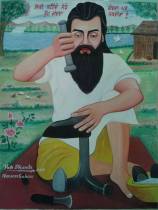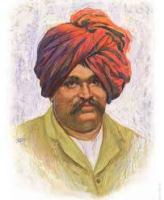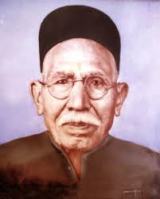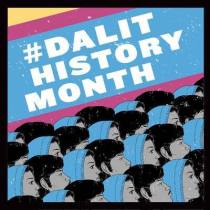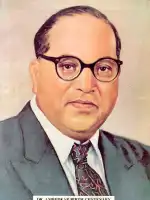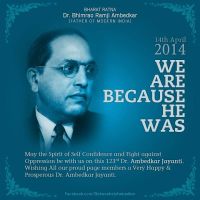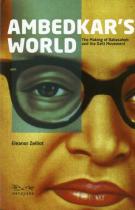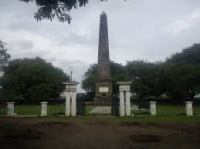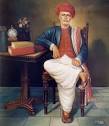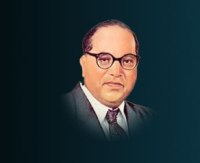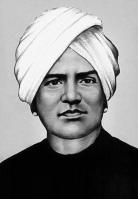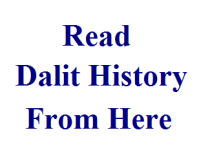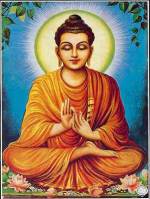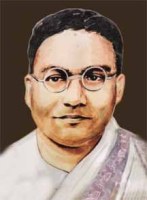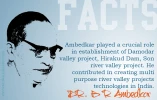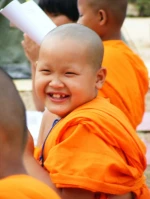On the 31st July, 1940, Udham Singh was hanged at Pentonville jail, London. On the 4th of June in the same year he had been arraigned before Mr. Justice Atkinson at the Central Criminal Court, the Old Bailey. Udham Singh was charged with the murder of Sir Michael O’Dwyer, the former Lieutenant-Governor of the Punjab who had approved of the action of Brigadier-General R.E.H. Dyer at Jallianwala Bagh, Amritsar on April 13, 1919, which had resulted in the massacre of hundreds of men, women and children and left over 1,000 wounded during the course of a peaceful political meeting. The assassination of O’Dwyer took place at the Caxton Hall, Westminster. The trial of Udham Singh lasted for two days, he was found guilty and was given the death sentence. On the 15th July, 1940, the Court of Criminal Appeal heard and dismissed the appeal of Udham Singh against the death sentence.
Check also – 31st July (1940) in Dalit History – Death anniversary of Shaheed-i-Azam Sardar Udham Singh
Prior to passing the sentence Mr. Justice Atkinson asked Udham Singh whether he had anything to say. Replying in the affirmative he began to read from prepared notes. The judge repeatedly interrupted Udham Singh and ordered the press not to report the statement. Both in Britain and India the government made strenuous efforts to ensure that the minimum publicity was given to the trial. Reuters were approached for this purpose.
Check also – Video traces Shaheed Udham Singh’s life
The father of Udham Singh, Tehl Singh, was born into a poor peasant family and worked as a Railway Gate Keeper at the railway level crossing at Village Uppali. Udham Singh was born on 28th December, 1899 at Sanam, Sangrur District, Punjab. After the death of his father Udham Singh was brought up in a Sikh orphanage in Amritsar. The massacre at Jallianwala Bagh in 1919 was deeply engraved in the mind of the future martyr. At the age of 16 years Udham Singh defied the curfew and was wounded in the course of retrieving the body of the husband of one Rattan Devi in the aftermath of the slaughter. Subsequently Udham Singh travelled abroad in Africa, the United States and Europe. Over the years he met Lala Lajpat Rai, Kishen Singh and Bhagat Singh, whom he considered his guru and ‘his best friend’. In 1927 Udham Singh was arrested in Amritsar under the Arms Act. The impact of the Russian revolution on him is indicated by the fact that amongst the revolutionary tracts found by the raiding party was Rusi Ghaddar Gian Samachar. After serving his sentence and visiting his home town, Udham Singh resumed, his travels abroad. If it was the Jallianwala Bagh massacre which provided the turning point of his life which led him to avenge the dead, it was Bhagat Singh who provided him with the inspiration to pursue the path of revolutionary struggle.
Check also – 26th December (1899) in Dalit History – Birth Anniversary of Saheed Udham Singh
Echoes of Kartar Singh Sarabha and Bhagat Singh may be found in the words of Udham Singh in the wake of the assassination of O’Dwyer.
Check also – Shaheed Udham Singh’s Last Words
‘I don’t care, I don’t mind dying. What Is the use of waiting till you get old? This Is no good. You want to die when you are young. That is good, that Is what I am doing’.
After a pause he added:
‘I am dying for my country’.
In a statement given on March 13th, 1940 be said:
‘I just shot to make protest. I have seen people starving In India under British Imperialism. I done it, the pistol went off three or four times. I am not sorry for protesting. It was my duty to do so. Put some more. Just for the sake of my country to protest. I do not mind my sentence. Ten, twenty, or fifty years or to be hanged. I done my duty.’
In a letter from Brixton Prison of 30th March, 1940, Udham Singh refers to Bhagat Singh in the following terms:
‘I never afraid of dying so soon I will be getting married with execution. I am not sorry as I am a soldier of my country it is since 10 years when my friend has left me behind and I am sure after my death I will see him as he is waiting for me it was 23rd and I hope they will hang me on the same date as he was.’
The British courts were able to silence for long the last words of Udham Singh. At last the speech has been released from the British Public Records Office.
Shorthand notes of the Statement made by Udham Singh after the Judge had asked him if he had anything to say as to why sentence should not be passed upon him according to Law.
Facing the Judge, he exclaimed, ‘I say down with British Imperialism. You say India do not have peace. We have only slavery. Generations of so called civilization has brought for us everything filthy and degenerating known to the human race. All you have to do is read your own history. If you have any human decency about you, you should die with shame. The brutality and bloodthirsty way in which the so called intellectuals who call themselves rulers of civilization in the world are of bastard blood…’
MR. JUSTICE ATKINSON: I am not going to listen to a political speech. If you have anything relevant to say about this case say it.
UDHAM SINGH: I have to say this. I wanted to protest.
The accused brandished the sheaf of papers from which he had been reading.
THE JUDGE: Is it in English?
UDHAM SINGH: You can understand what I am reading now.
THE JUDGE: I will understand much more if you give it to me to read.
UDHAM SINGH: I want the jury, I want the whole lot to hear it.
Mr. G.B. McClure (Prosecuting) reminded the Judge that under Section 6 of the Emergency Powers Act he could direct that Udham Singh’s speech be not reported or that it could be heard in camera.
THE JUDGE (to the accused): You may take it that nothing will be published of what you say. You must speak to the point. Now go on.
UDHAM SINGH: I am protesting. This is what I mean. I am quite innocent about that address. The jury were misled about that address. I am going to read this now.
THE JUDGE: Well, go on.
While the accused was perusing the papers, the Judge reminded him ‘You are only to say why sentence should not be passed according to law.’
UDHAM SINGH (shouting): ‘I do not care about sentence of death. It means nothing at all. I do not care about dying or anything. I do not worry about it at all. I am dying for a purpose.’ Thumping the rail of the dock, he exclaimed, ‘We are suffering from the British Empire.’ Udham Singh continued more quietly. ‘I am not afraid to die. I am proud to die, to have to free my native land and I hope that when I am gone, I hope that in my place will come thousands of my countrymen to drive you dirty dogs out; to free my country.’
‘I am standing before an English jury. I am in an English court. You people go to India and when you come back you are given a prize and put in the House of Commons. We come to England and we are sentenced to death.’
‘I never meant anything; but I will take it. I do not care anything about it, but when you dirty dogs come to India there comes a time when you will be cleaned out of India. All your British Imperialism will be smashed.’
‘Machine guns on the streets of India mow down thousands of poor women and children wherever your so-called flag of democracy and Christianity flies.’
‘Your conduct, your conduct – I am talking about the British government. I have nothing against the English people at all. I have more English friends living in England than I have in India. I have great sympathy with the workers of England. I am against the Imperialist Government.’
‘You people are suffering – workers. Everyone are suffering through these dirty dogs; these mad beasts. India is only slavery. Killing, mutilating and destroying – British Imperialism. People do not read about it in the papers. We know what is going on in India.’
MR. JUSTICE ATKINSON: I am not going to hear any more.
UDHAM SINGH: You do not want to listen to any more because you are tired of my speech, eh? I have a lot to say yet.
THE JUDGE: I am not going to hear any more of that statement.
UDHAM SINGH: You ask me what I have to say. I am saying it. Because you people are dirty. You do not want to hear from us what you are doing in India.
Thrusting his glasses back into his pocket, Udham Singh exclaimed three words in Hindustani and then shouted, Down with British Imperialism! Down with British dirty dogs!’
As he turned to leave the dock, the accused spat across the solicitor’s table.
After Singh had left the dock, the Judge turned to the Press and said:
‘I give a direction to the Press not to report any of the statement made by the accused in the dock. You understand, members of the press?’
Lalkar, July-August, 1996.






